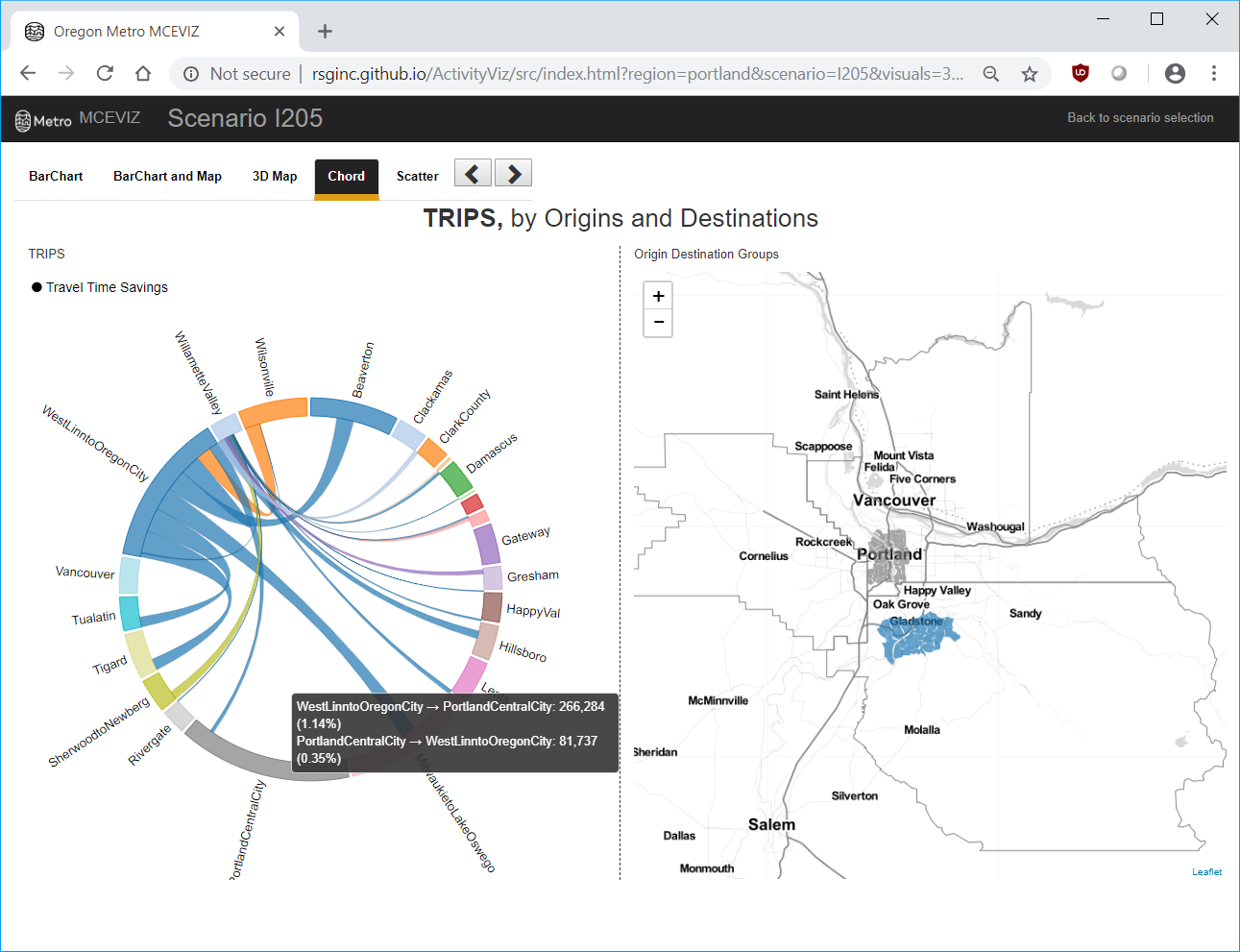Development of a Multi-Criteria Evaluation Toolkit
Oregon Metro
Transportation planners use benefit-cost analysis (BCA) tools to inform policies or investments. While immensely helpful, BCA tools are often focused, examining only the economic impact of transportation planning decisions. Oregon Metro wanted something broader in scope. Specifically, they sought a quantitative analytic tool that also examined the impact of planning decisions in environmental and social/equity ways.
RSG worked with Oregon Metro to develop the “Multi-Criteria Evaluation (MCE) toolkit.” Its benefits calculator, which we implemented in the Python-based ActivitySim framework, built upon our previous work in San Diego and for the Federal Highway Administration. It also includes a new benefit category called “option value.” This is a significant addition. It makes the formal analytical process sensitive to something that is valuable to network users (e.g., trails and transit) that many models had not accounted for explicitly. In addition, the MCE toolkit's costing workbook calculates total project costs by type and net present value. This helps users conduct targeted outreach and improves regional project prioritization. The MCE toolkit also includes an interactive visualization website/dashboard with charts and maps to explore benefits across scenarios.
The toolkit is complete and in use by Oregon Metro staff. We have since assisted with its application for several regionally significant transportation planning projects. For instance, we applied the MCE toolkit to support alternatives analyses of regional highway value pricing scenarios. Importantly, the MCE toolkit can answer emergent and ongoing policy questions related to disproportionate benefits/burdens. Future applications will help Oregon Metro inform community discussion around project prioritization, especially any equity or environmental justice components of transportation projects.
Related Reports & Publications

